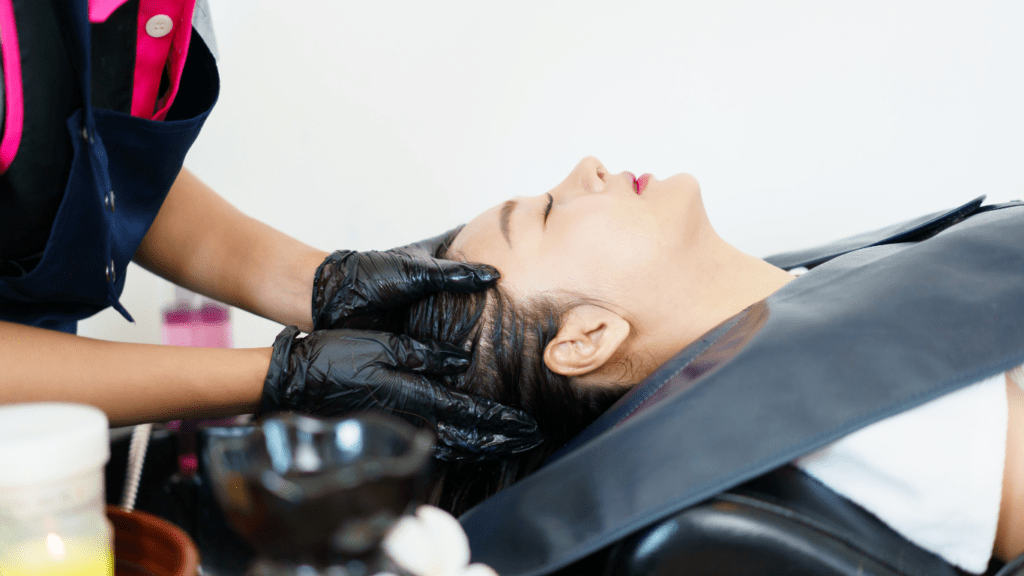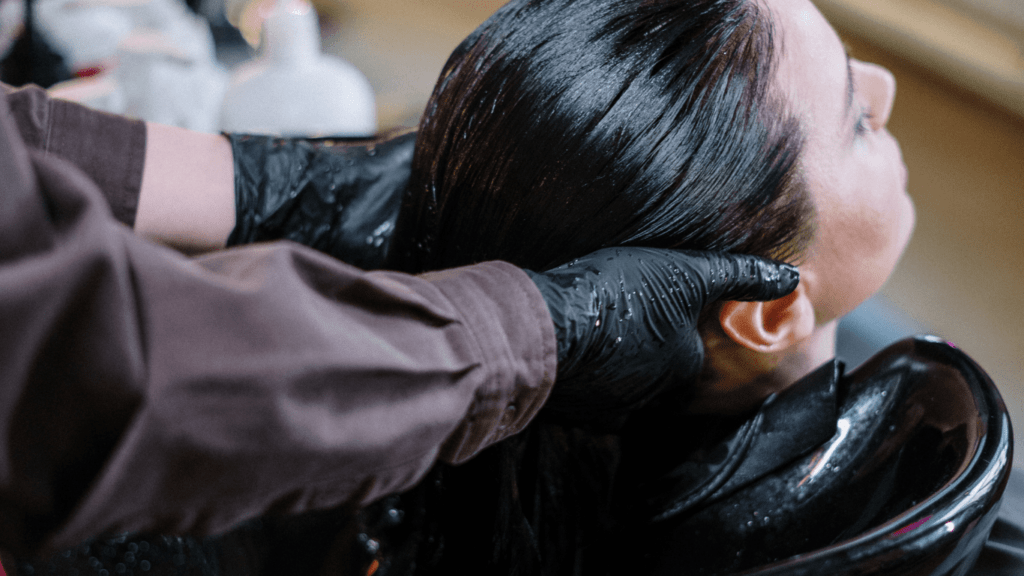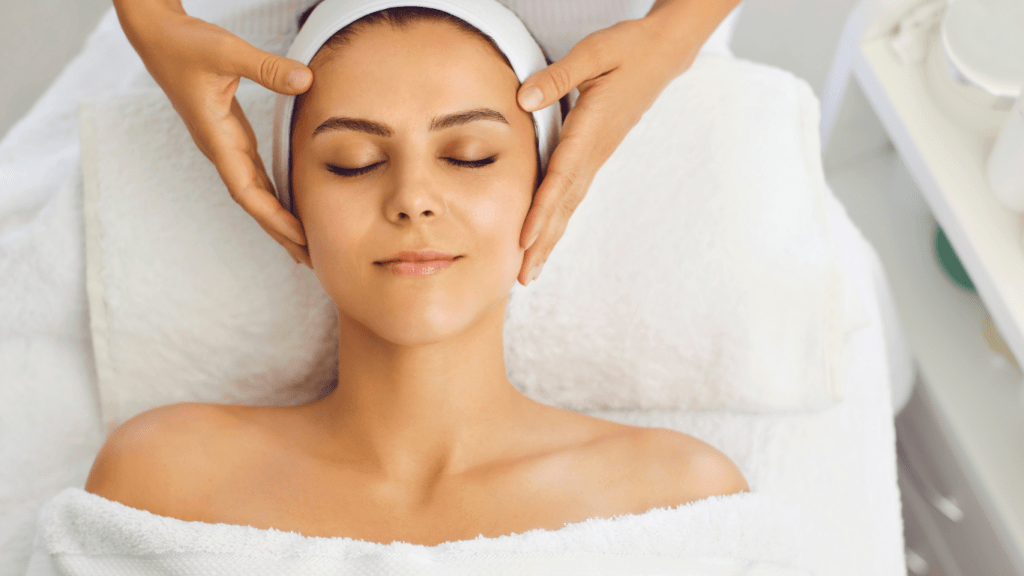Importance of Haircare
Healthy hair starts with consistent care. Neglecting haircare can result in issues like dryness and breakage. Proper haircare isn’t just about aesthetics. It affects the overall health of your scalp, which in turn influences hair growth. According to the American Academy of Dermatology, regular washing helps maintain scalp health and removes oil, dirt, and product buildup.
Using quality products matters. Cheap, harsh shampoos can strip natural oils, leading to dryness and irritation. Opt for sulfate-free shampoos and conditioners to preserve moisture.
Hydration is key. Moisturized hair is less prone to damage. Weekly deep-conditioning treatments can restore and retain moisture for optimal hair health.
Don’t overlook diet. Nutrients like vitamins A and E, biotin, and omega-3 fatty acids contribute to stronger, shinier hair. Include foods like eggs, nuts, and fish in your diet.
Consistency is crucial. Adopt a simple haircare routine and stick to it. Over time, you’ll notice improvements in texture, shine, and overall hair health.
Daily Haircare Tips

Shiny, healthy hair isn’t achieved overnight. Routine care with the right products and techniques makes a noticeable difference.
Choosing the Right Shampoo and Conditioner
Using the right shampoo and conditioner matters. I opt for sulfate-free shampoos as they don’t strip natural oils. For conditioners, I pick those with nourishing ingredients like argan oil, shea butter, and keratin to enhance moisture and strength. Consider your hair type—dry, oily, or normal—when picking products.
Gentle Washing Techniques
How you wash your hair affects its health. I use lukewarm water to avoid stripping oils. Only applying shampoo to my scalp prevents drying the ends. Massaging gently with fingertips, not nails, reduces breakage. Rinsing thoroughly ensures no residue weighs hair down.
Proper Drying Methods
Drying methods impact hair texture. After washing, I gently squeeze excess water with a micro-fiber towel, which is less harsh. Avoid rubbing, as this causes frizz and breakage. When blow-drying, I use a heat protectant spray and keep the dryer on a low heat setting, maintaining some distance from my hair to prevent damage. Air-drying whenever possible minimizes heat exposure.
Weekly Haircare Regimen
I’ve found consistency key to maintaining healthy, shiny hair. Weekly haircare rituals provide deeper nourishment compared to daily routines.
Deep Conditioning Treatments
Deep conditioning treatments are essential for reviving dry, damaged hair. I apply a high-quality, sulfate-free deep conditioner to my hair once a week. This practice hydrates my hair, restoring its natural shine and softness. For better results, I use a heat cap or a warm towel, as heat helps the conditioner penetrate more effectively. After 20-30 minutes, I rinse thoroughly with cool water to seal the cuticles. My hair feels smoother and more manageable afterward.
Scalp Massages
Scalp massages boost blood circulation, promoting healthier hair growth. I spend at least 5-10 minutes once a week massaging my scalp gently with my fingertips. Using circular motions, I cover the entire scalp to ensure proper stimulation. Adding a few drops of essential oils like rosemary or peppermint enhances the experience and provides additional nourishment. These massages not only help in distributing natural oils but also offer a relaxing experience, reducing stress.
Diet and Lifestyle
Maintaining shiny, healthy hair involves more than just external treatments. Diet and lifestyle significantly impact hair health.
Hydration and Nutrition
I ensure I stay hydrated throughout the day. Drinking at least 8 cups of water daily helps keep my hair moisturized from the inside out. Eating a balanced diet is equally important. I include various nutrients, such as:
- Proteins (e.g., lean meats, eggs, fish): Proteins are essential for hair growth, as hair is primarily made of keratin, a protein.
- Vitamins (e.g., vitamin A from carrots, vitamin E from nuts): Vitamins promote healthy scalp and hair.
- Minerals (e.g., iron from spinach, zinc from nuts): Minerals help prevent hair thinning and loss.
- Omega-3 Fatty Acids (e.g., seeds, fish oil): Omega-3 promotes hair lubrication and prevents dryness.
Stress Management
Managing stress is crucial for hair health. Chronic stress can lead to hair loss and other hair issues. I practice various stress-relief techniques:
- Physical Activity (e.g., yoga, jogging): Physical activity releases endorphins, reducing stress levels.
- Meditation (e.g., mindfulness, guided): Meditation provides relaxation, helping reduce stress.
- Adequate Sleep (7-9 hours): Restful sleep is essential for stress management and overall health.
- Time Management (e.g., planning, prioritizing): Proper time management prevents feeling overwhelmed.
Together, these diet and lifestyle habits form an essential part of my haircare routine.
Common Mistakes to Avoid
Shiny, healthy hair isn’t just about what you do; it’s also about what you don’t do. Avoiding common mistakes helps maintain your hair’s luster and strength.
Overwashing and Over-Styling
Washing hair too often strips it of natural oils, leaving it dry and brittle. I wash my hair 2-3 times a week to help it retain moisture. Over-styling with tools like hair dryers, flat irons, and curling irons can cause heat damage and split ends. Limiting heat use and incorporating air drying preserves hair health.
Ignoring Heat Protection
Heat damage weakens hair strands, leading to breakage and frizz. I always apply a heat protectant spray before using any styling tools. Protecting hair from heat ensures it stays shiny and strong despite styling practices. Neglecting this step can result in considerable damage over time.


 Creative Director at Divine Glamour Trail, is the visionary behind the platform, which is dedicated to bringing readers the latest trends in hairstyles, beauty, and skincare. With a passion for timeless fashion and expert style guidance, George provides tips, secrets, and updates that empower individuals to enhance their personal style. His platform is a go-to source for anyone looking to stay ahead in the fashion game, combining modern trends with timeless elegance to help readers feel confident and look their best.
Creative Director at Divine Glamour Trail, is the visionary behind the platform, which is dedicated to bringing readers the latest trends in hairstyles, beauty, and skincare. With a passion for timeless fashion and expert style guidance, George provides tips, secrets, and updates that empower individuals to enhance their personal style. His platform is a go-to source for anyone looking to stay ahead in the fashion game, combining modern trends with timeless elegance to help readers feel confident and look their best.
